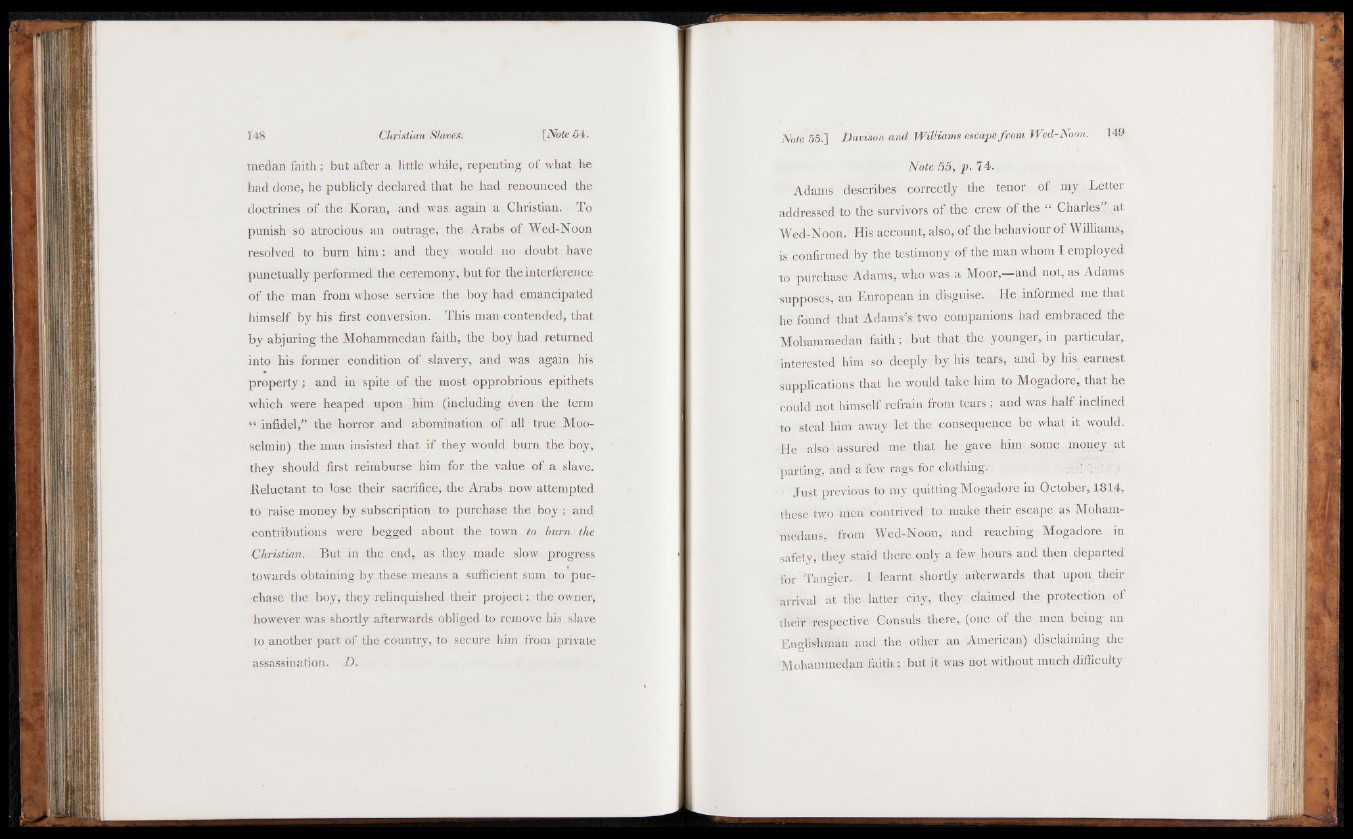
medan faith; but after a little while, repenting of what he
had done, he publicly declared that he had renounced the
doctrines of the Koran, and was again a Christian. To
punish so atrocious an outrage, the Arabs of Wed-Noon
resolved to burn him; and they would no doubt have
punctually performed the ceremony, but for the interference
of the man from whose service the boy had emancipated
himself by his first conversion. This man contended; that
by abjuring the Mohammedan faith, the boy had returned
into his former condition of slavery, and was again his
property; and in spite of the most opprobrious epithets
which were heaped upon him (including even the term
gf infidel,” the horror and abomination of all true Moo-
selmin) the man insisted that if they would burn the boy;
they should first reimburse him for the value of a slave.
Reluctant to lose their sacrifice, the Arabs now attempted
to raise money by subscription to purchase the boyf and
contributions were begged about the town to burn the
Christian. But in the end, as they made slow progress
towards obtaining by these means a sufficient sum to purchase
the boy, they relinquished their project; the owner,
however was shortly afterwards obliged to remove his slave
to another part of the country, to secure him from private
assassination. D.
Note 55, p. 74.,
Adams describes correctly the tenor of my Letter
addressed to the survivors of the crew of the “ Charles at
Wed-Noon. His account, also, of the behaviour of Williams,
is confirmed by the testimony of the man whom I employed
to purchase Adams, who was a Moor,—and not, as Adams
supposes, an European in disguise. He informed me that
he found that Adams's two companions had embraced the
Mohammedan faith; but that the younger, in particular,
interested him so deeply by his tears, and by his earnest
supplications that he would take him to Mogadore, that he
could not himself refrain from tears; and was half inclined
to steal him away let the consequence be what it would.
He also assured me that he gave him some money at
parting, and a few rags for clothing.
Just previous to my quitting Mogadore in October, 1814,
these two men contrived to make their escape as Mohammedans,
from Wed-Noon, and reaching Mogadore in
safety; they staid there only.a few hours and then departed
'for Tangier. I learnt shortly afterwards that upon their
arrival at the latter city, they claimed the protection of
their respective Consuls there, (one of the men being an
Englishman and the other an American) disclaiming the
Mohammedan faith; but it was not without much difficulty